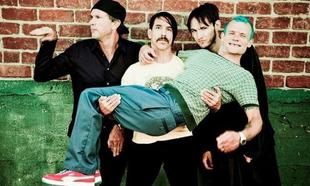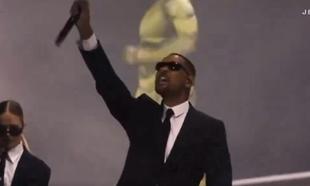Following a twelve-year absence, Ben Folds has got the band back together. He and his two fellow North Carolinians (drummer Darren Jessee and bassist Robert Sledge) comprise the trio that is the Ben Folds Five. The reformed group issue The Sound of the Life of the Mind, their first album since 1999, from an older and wiser place, with Folds' age-worn maturity reflected in this latest assortment of high-energy piano-rock and earnestly authoritative ballads.
Present once again on The Sound... are many of those ingredients which first made Ben Folds' name on the American college circuit (along with sporadic dalliances with the Billboard charts) back in the late 1990s. 'Do It Anyway' stands out as a jovial and idiosyncratic message of empowerment communicated through an upbeat and bawdy saloon vibe. Those crashing cymbals are again prevalent on bombastic opening track 'Erase Me', working lounge piano and jazzy improv between those heavier moments guided by Sledge's woolly bass.
Some of the album's finest moments are found on the quieter end of the Folds spectrum. The measured and pensive 'Sky High', penned by Jessee (who also wrote the chorus to 1998 hit 'Brick'), benefits from repeated listens, revealing its vulnerable sincerity. Eloquence and emotional intelligence is also the name of the game on the concise 'Away When You Were Here': enhanced by subtle strings, the song is a powerful and melodic ode to a departed father, concerned with breaking free from the shadow of his shortcomings. Lyrically, the album strives for insight. Always articulate and incisive, Folds has a knack for finding depth and meaning in the commonplace. Elsewhere on the album, 'Michael Praytor, Five Years Later' and the idiomatic defiance of 'Draw a Crowd' see Folds assert his two cents in familiar but predictable piano-rock territory.
Ben Folds Five strike a deliberate balance between throwaway moments and stabs at profundity. Folds injects doses of his trademark humour and flippancy, but finds room for poignancy throughout. As such, it is no radical departure for the power pop merchant, and for observers who have been following Folds' prolific solo career over the last decade, there is little on the band's fourth album to distinguish it. This need not negate the anticipation that has accompanied news of the talented trio's reunion for everyone, however, as The Sound of the Life of the Mind showcases fresh work of a cohesive unit presided over by a 40-something who still has plenty to say about being the white, middle-class everyman. Ably supported by Jessee and Sledge, Folds has produced an album of spontaneous musicial chemistry that is predominantly full, rich and retains the mark of a man who is proud to follow his own musical path.









































































